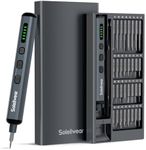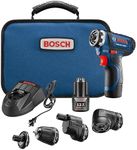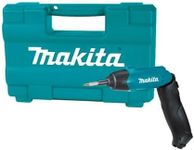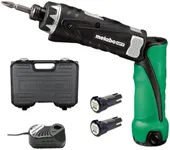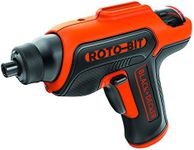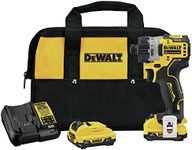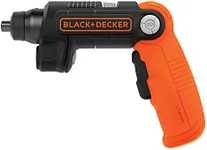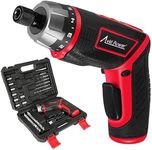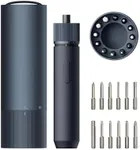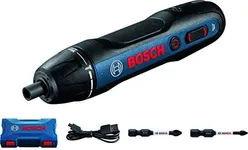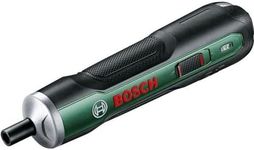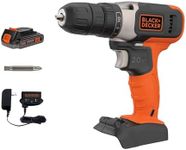Buying Guide for the Best Cordless Screwdrivers
Choosing the right cordless screwdriver can make your DIY projects and home repairs much easier and more efficient. The key is to understand what features matter most for your needs, whether you’re assembling furniture, fixing things around the house, or tackling more demanding tasks. By focusing on the main specifications, you can find a tool that’s comfortable, powerful enough, and easy to use for your typical projects.Battery VoltageBattery voltage tells you how much power the screwdriver can deliver. Higher voltage means more strength for tougher jobs, while lower voltage is lighter and easier to handle for simple tasks. Cordless screwdrivers usually range from about 3.6V to 12V. If you mostly do light work like assembling furniture or tightening screws, a lower voltage is fine. For heavier tasks, like driving screws into harder materials, a higher voltage will be more effective.
Battery TypeMost cordless screwdrivers use either NiCd (Nickel-Cadmium) or Li-ion (Lithium-Ion) batteries. Li-ion batteries are lighter, hold their charge longer, and don’t suffer from memory effect, making them more convenient for most users. NiCd batteries are heavier and less common now. If you want a tool that’s ready to go when you need it and is easy to carry, look for a Li-ion battery.
Torque SettingsTorque is the twisting force the screwdriver can apply. Adjustable torque settings let you control how much force is used, which helps prevent over-tightening or damaging screws and materials. Lower torque is good for delicate tasks, while higher torque is needed for tougher jobs. If you work with a variety of materials, choose a model with multiple torque settings so you can adjust as needed.
Speed (RPM)Speed, measured in revolutions per minute (RPM), affects how quickly the screwdriver turns the screw. Lower speeds are better for control and precision, while higher speeds help you finish jobs faster. Some models offer variable speed control, which is useful if you want flexibility for different tasks. If you need more control for delicate work, look for lower or adjustable speeds; for faster work, higher speeds are better.
Size and WeightThe size and weight of the screwdriver affect how comfortable it is to use, especially for longer periods or in tight spaces. Lighter, more compact models are easier to handle and fit into small areas, making them ideal for light tasks and overhead work. Heavier models may offer more power but can be tiring to use. Think about where and how long you’ll be using the tool to decide what’s best for you.
Chuck TypeThe chuck is the part that holds the screwdriver bit. Most cordless screwdrivers use a keyless chuck, which lets you change bits quickly and easily by hand. Some have magnetic chucks for even faster changes. If you plan to switch bits often or want convenience, look for a keyless or magnetic chuck.
Additional FeaturesSome cordless screwdrivers come with extra features like built-in LED lights, battery indicators, or a pivoting handle for better access in tight spots. These features can make your work easier and more comfortable. Consider which extras would be genuinely useful for your typical projects, rather than just nice to have.

